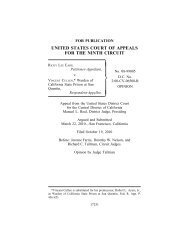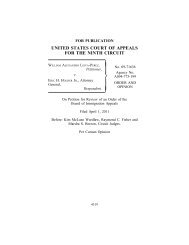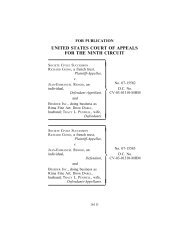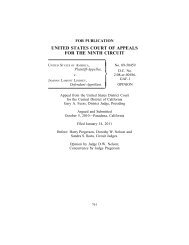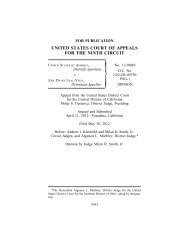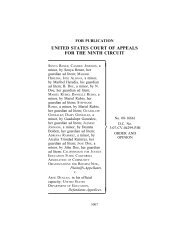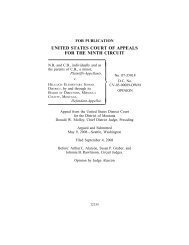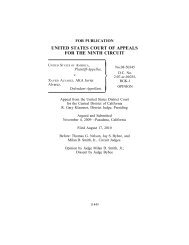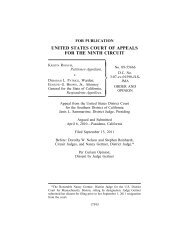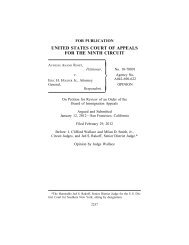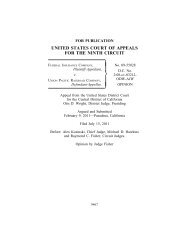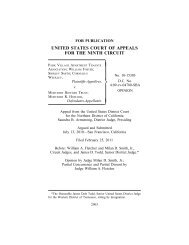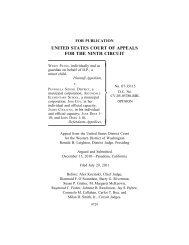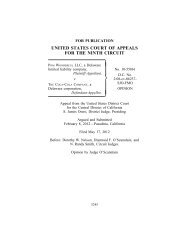olakunle oshodi v. eric h. holder jr. - Ninth Circuit Court of Appeals
olakunle oshodi v. eric h. holder jr. - Ninth Circuit Court of Appeals
olakunle oshodi v. eric h. holder jr. - Ninth Circuit Court of Appeals
Create successful ePaper yourself
Turn your PDF publications into a flip-book with our unique Google optimized e-Paper software.
“Under the substantial evidence standard, we may reverse<br />
a BIA credibility determination only if the evidence that the<br />
petitioner presented was so compelling that no reasonable<br />
factfinder could find that the petitioner was not credible.” Id.<br />
at 917 (citation, alteration, and internal quotation marks omitted).<br />
“Where the BIA has reviewed the IJ’s decision and<br />
incorporated portions <strong>of</strong> it as its own, we treat the incorporated<br />
parts <strong>of</strong> the IJ’s decision as the BIA’s.” Id. (citation and<br />
alteration omitted).<br />
III. DISCUSSION<br />
OSHODI v. HOLDER<br />
A. The BIA’s Inquiry Upon Remand<br />
745<br />
Oshodi contends that we should remand because the BIA<br />
failed to conduct an inquiry in accordance with our prior mandate.<br />
On remand, a court is “free as to anything not foreclosed<br />
by the mandate, and, under certain circumstances, an order<br />
issued after remand may deviate from the mandate if it is not<br />
counter to the spirit <strong>of</strong> the circuit court’s decision.” United<br />
States v. Perez, 475 F.3d 1110, 1113 (9th Cir. 2007) (citation<br />
omitted).<br />
[1] Addressing the first remand issue, the BIA determined<br />
that the REAL ID Act codified the BIA’s corroboration standards,<br />
which place the burden on the applicant to provide corroborative<br />
evidence when the trier <strong>of</strong> fact requires<br />
corroboration. The BIA found that the IJ was correct in concluding<br />
that Oshodi failed to meet this burden, and referenced<br />
the section <strong>of</strong> the IJ’s decision that analyzed in detail all<br />
aspects <strong>of</strong> Oshodi’s claim that lacked corroborating evidence.<br />
Therefore, we conclude that the BIA sufficiently considered<br />
the REAL ID Act’s impact on the BIA’s finding that Oshodi’s<br />
claims were not sufficiently corroborated.



